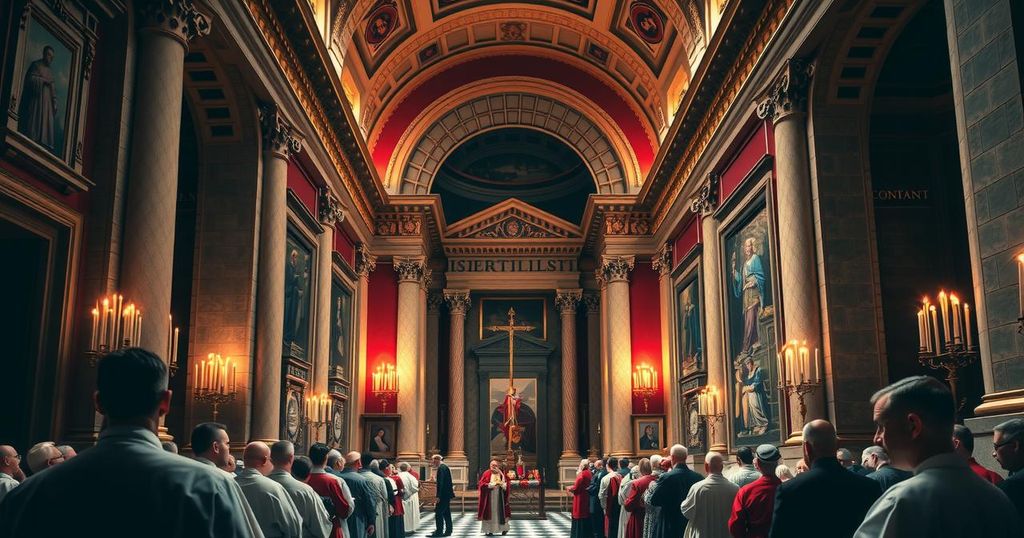Cardinal Sir John Ribat votes for a new pope representing PNG and the Solomon Islands, with the conclave currently in ongoing ballots. Initial voting did not yield a new pope, as indicated by black smoke. Awaited results suggest that millions of Catholics are looking for a new leader, amid prayers and hopes for holiness among candidates.
Cardinal Sir John Ribat has made history by casting his first-ever vote for a new pope, representing Papua New Guinea and the Solomon Islands during the conclave tasked with selecting a successor to the late Pope Francis. The conclave, which consists of 133 cardinals, commenced voting, including multiple rounds last night, with expectations to announce a new pope either later today or by tonight if voting continues.
Catholics worldwide are widely anticipating news of the new pope, with millions waiting as ballots cast earlier today did not yield a clear successor. In St. Peter’s Square, about 45,000 people eagerly awaited the announcement that was initially expected shortly after 7 PM on Wednesday. Unfortunately, they were left in suspense until nearly 9 PM. The first ballot concluded with the emergence of black smoke from the Sistine Chapel, indicating that no pope had been elected yet.
Deacon Nicholas Nkoronko from Tanzania was among the gathered crowd, emphasizing the importance of prayer during this pivotal time. “Our role here is to pray and to join with other Christians, other Catholics, to pray for the Holy Spirit to guide the whole process,” he noted. He expressed a broader hope for whoever is chosen, advocating for a new leader that embodies holiness, regardless of their geographic origin.
Following the first round of votes, the College of Cardinals resumed discussions last night, continuing the procedure this morning as thousands still congregated outside the Vatican in eager anticipation. The papal conclave comprises cardinals under 80 years old, chosen by previous popes, with the number of voting cardinals varying depending on various factors.
The term “conclave” originates from the Latin phrase “cum clave,” meaning “with a key,” signifying the tradition of locking the doors of the Sistine Chapel to ensure cardinals remain until they elect a new leader. The election process unfolds within the Sistine Chapel, and voting persists until one candidate achieves a two-thirds majority. Once a new pope is elected, he will select his papal name and be formally announced to the world.
As this historic event unfolds, the global Catholic community watches closely, hoping for a guiding figure in their faith and beyond.
In conclusion, Cardinal Sir John Ribat’s vote marks a significant moment for Papua New Guinea and the Solomon Islands in the global Catholic community. As the conclave continues its deliberations, anticipation for a new pope grows, with many looking for guidance and holiness in the new leader. The voting processes are rigorous, and many are hopeful that a successor to Pope Francis will soon be elected, reflecting unity and faith from the church.
Original Source: www.postcourier.com.pg






